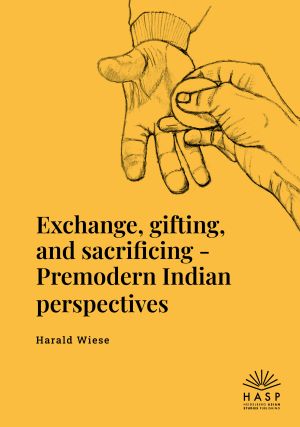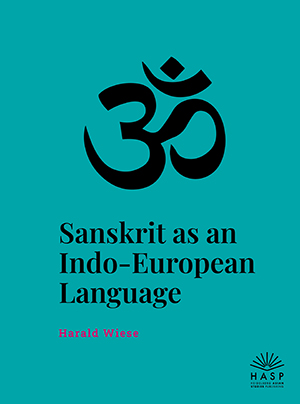Wiese, Harald
Exchange, gifting, and sacrificing: Premodern Indian perspectives
In both the Vedic and the classical periods, a special elite class of people existed that were called Brahmins. In a rough manner, one might say that their material wellbeing depended on dakṣiṇā in the Vedic period and on dāna in the classical one.
Broadening the perspective beyond dakṣiṇā and dāna, this book is on all sorts of giving in the context of pre-modern India, using Vedic, Sanskrit, Buddhist and, to a much lesser extent, Roman and Christian sources. The Brahmanical theory of the gift (i.e., the theory of dutiful gifting, dharmadāna) is a major focus of, and has provided a major motivation for, this study.
Sanskrit as an Indo-European Language
Students of Sanskrit can choose among several good textbooks. Whichever they may choose, learning Sanskrit is a daunting task. This book is not an alternative textbook for learning Sanskrit. Instead, it is to accompany these textbooks and written in the hope to make Sanskrit learning easier by explaining words and grammatical forms from an Indo-European point of view. Consider, for example Old Indian ad which means “to eat”, but is also historically related to both English (abbreviated by E) eat and New High German (NHG) essen. There was an Indo-European (IE) root ed that branched out into all these words over some millennia. Even E tooth and NHG Zahn stem from IE ed.









